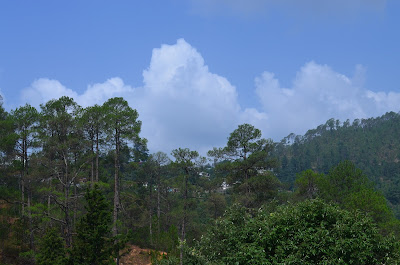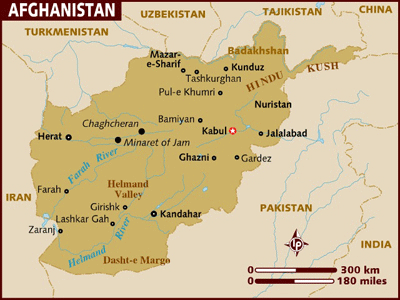* The Rohingya people have become the forgotten people. The world leaders and superpowers preoccupied with the Middle-east and the Islamic State terrorists have almost forgotten the persecution of this minority group, thousands of which have perished in the sea, and thousands are seeking asylum in Thailand, Indonesia, Malaysia and other Asian countries.
History
* The Rohingyas Muslims are people of Indo-Aryan race from Rakhine state in Burma. Some historians believe they are indigenous to Rakhine, while the others claim they have migrated to Burma from Bengal, primarily during the British rule. After the first Ango-Burmese War in 1826, the British annexed Arakan and encouraged the Muslims from Bengal to work as the farm labourers there. The Muslim then constituted 5% of Arakan's population which in 2015 has shot up to almost 29% in the state.
* During the World War II, the state witnesses a series of communal violence after which the region became ethnically polarized. In 1982, General Ne Win’s government enacted the Burmese Nationality Law, which denied the Rohingya Muslims the citizenship. About 735,000 Rohingyas live in Burma, mainly in the northern Rakhine townships, where they are 80–98% of the population.
Genesis of Problem
* The British encouraged the Muslims from the adjacent regions to migrate into the then thinly populated and fertile valleys of Arakan as farm labourers. There was no international boundary between Bengal and Arakan and thus no restrictions on migration between the regions. In the early 19th century the Muslims en mass migrated from the Chittagong and settled in Burma seeking work. The impact of immigration was more acute in Arakan, the least populated region.
* During World War II, the Japanese forces invaded Burma, then under the British rule. The British forces retreated and as a result communal violence erupted between the Arakanese and the Muslim villagers. The British armed Muslims in northern Arakan to create a buffer zone to protect the region from a Japanese invasion.
* At the time of independence movement in India, the Rohingyas in Burma formed a separatist movement to merge the region into East Pakistan. Before the
independence of Burma in January 1948, the Muslim leaders from Arakan approached Jinnah, the founder of Pakistan, and asked for his help in merging Arakan’s Mayu region with Pakistan considering their religious affinity and geographical proximity with East Pakistan. The proposal never materialized since it was turned down by Jinnah saying that he was not in a position to interfere into Burmese matters.
* After Jinnah's refusal, the Rohingya elders founded the Mujahid party as a jihad movement in northern Arakan in 1947 with the aim to create an autonomous Muslim state in Arakan. Ne Win carried out military operations against them for over two decades. As a result, many Muslims in the region fled to neighboring Bangladesh as refugees. Rohingya Mujahideens are believed to be still active within the remote areas of Arakan.
Immigration Over the Years
* The post-war illegal immigration of the Rohingyas into that area was on a vast scale, and in the northern areas they replaced the Arakanese." From 1971 to 1973, saw an exodus of ten million Bengali refugees to neighbouring countries. From 1971 to 1978, a number of Rakhine monks and Buddhists staged hunger strikes in Sittwe to force the government to tackle immigration issues which they believed was causing a demographic shift in the region. Ne Win's government requested UN to repatriate the war refugees and launched military operations which drove off around 200,000 people to Bangladesh. In 1978, the Bangladesh government protested against the Burmese government concerning "the expulsion by force of thousands of Burmese Muslim citizens to Bangladesh." The Burmese government responded that those expelled were Bangladesh citizens who had resided illegally in Burma. In July 1978, after intensive negotiations mediated by UN, Ne Win's government agreed to take back 200,000 refugees who settled in Arakan. In 1982, the Bangladesh Government amended the citizenship law and declared all "Rohingyas" are non-nationals.
The 2012 Rakhine State riots
* The 2012 Rakhine State riots were a series of conflicts between Rohingya Muslims who are majority in the northern Rakhine and ethnic Rakhines who are majority in the south. Before the riots, there were widespread and strongly held fears circulating among Buddhist Rakhines that they would soon become a minority in their ancestral state. The riots erupted because of gang rape and murder of a Rakhine woman by Rohingyas and killing of ten Burmese Muslims by Rakhines. From both sides, whole villages were "decimated". The government responded by imposing curfews and deploying troops in the region.
The 2015 Rohingya Refugee Crisis
* In 2015, to escape systemic violence and persecution from Burma government thousands of Rohingyas migrated from Burma and Bangladesh, collectively dubbed as the 'boat people' by international media. About 25,000 people have taken to boats from January to March in 2015. About hundreds of boat people perished during the journey. An estimated 3000 refugees from Burma and Bangladesh have been rescued or swum to shore and several thousand are believed to remain trapped on boats at sea with little food or water.
* Bangladesh has become overpopulated and it has failed to provide its citizens with basic needs and therefore, the people are entering illegally into neighbouring countries. It's important that Bangladesh controls its population. This would solve not only its problems but also of other Asian neighbours.



















.jpg)






.jpg)